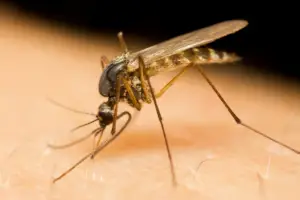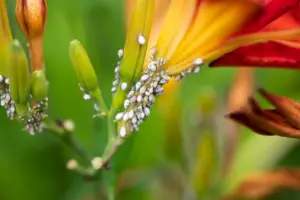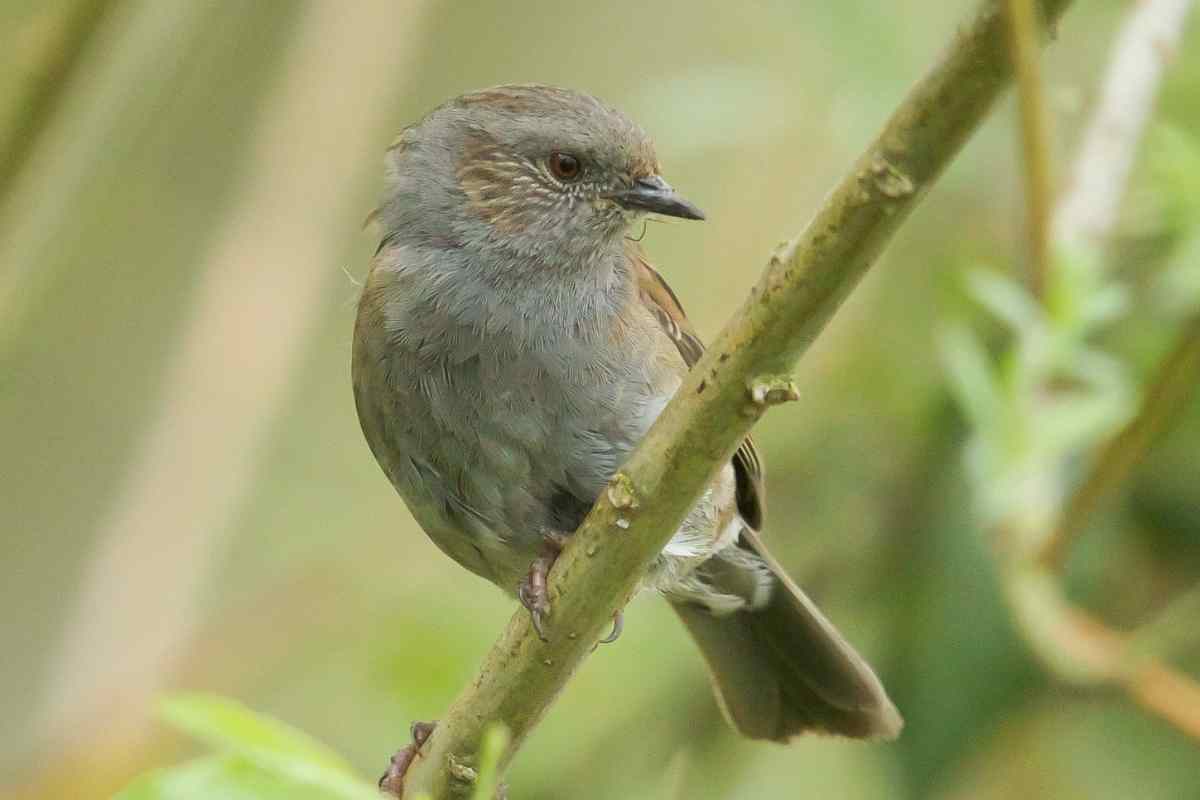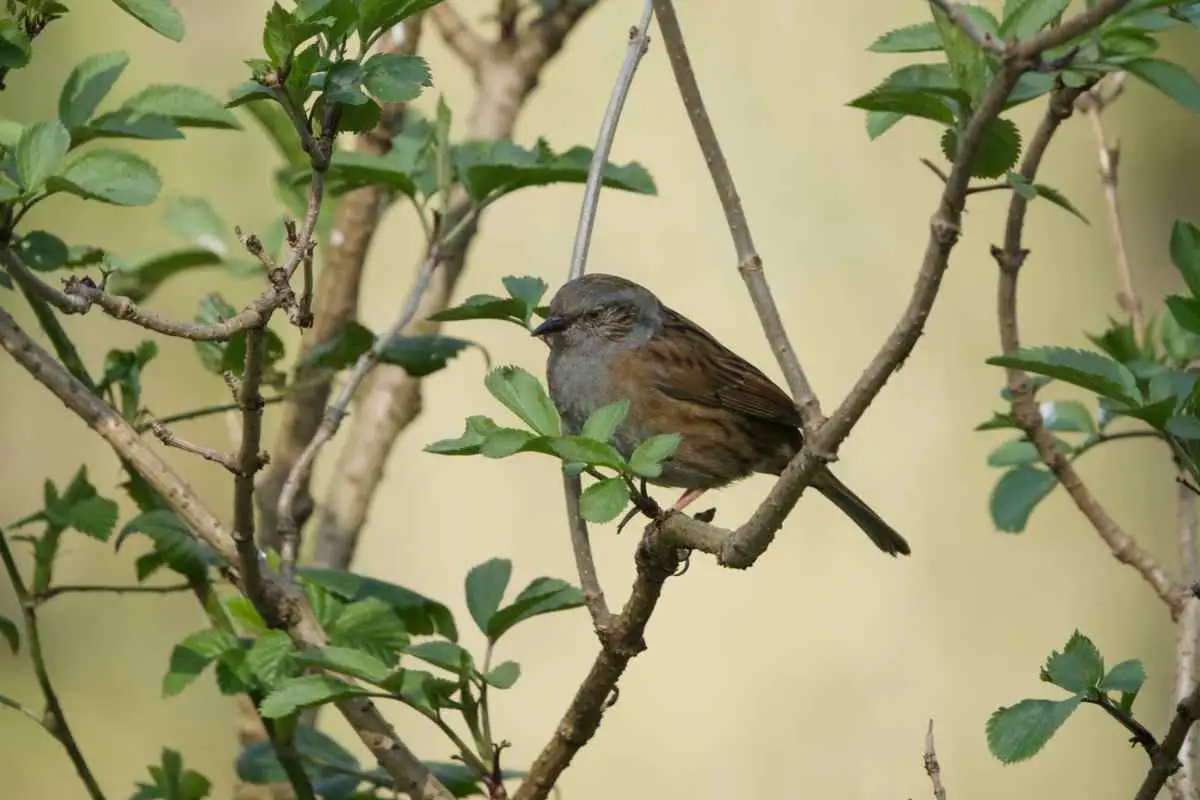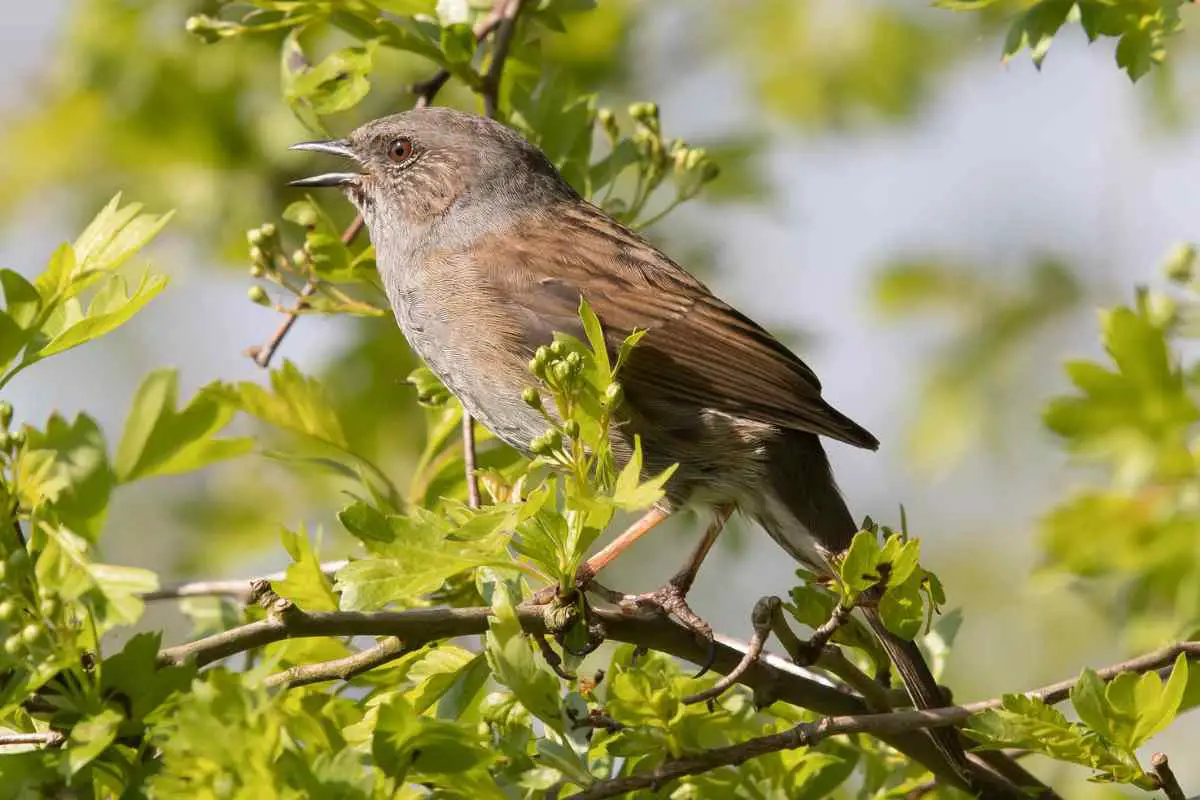Blackbirds frequently return to the same garden each year to raise their young. These birds love small gardens and will come back after winter ends. However, they’re territorial and may chase off other birds.
So, blackbirds do often return to the same garden each year.
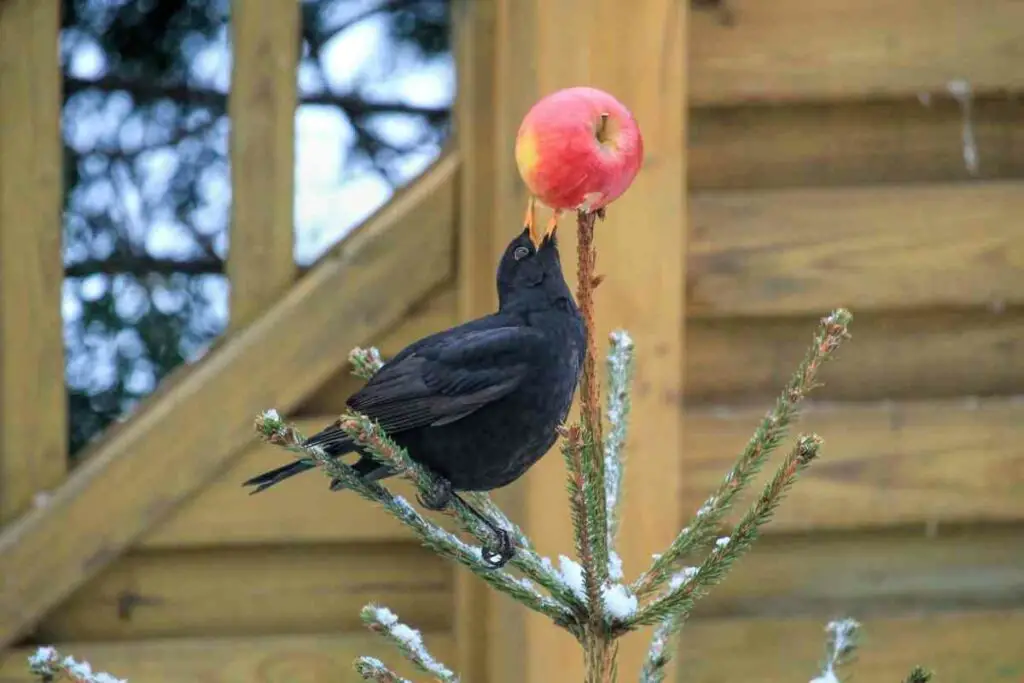
If you’ve seen them in your yard in the past, you can expect to see them again soon enough.
Blackbirds can benefit gardens by eating insect pests, such as beetles or crickets.
Table of Contents
Will Blackbirds Return to My Garden?
Blackbirds usually return to the same area year after year to raise their families.
Most of these birds live between three and four years, so you’ll likely see the same blackbirds in your garden often.
You can expect the blackbirds to return in the spring, staying well throughout the summer.
During this period, the birds will nest and have young- who are also likely to keep coming back to your garden!
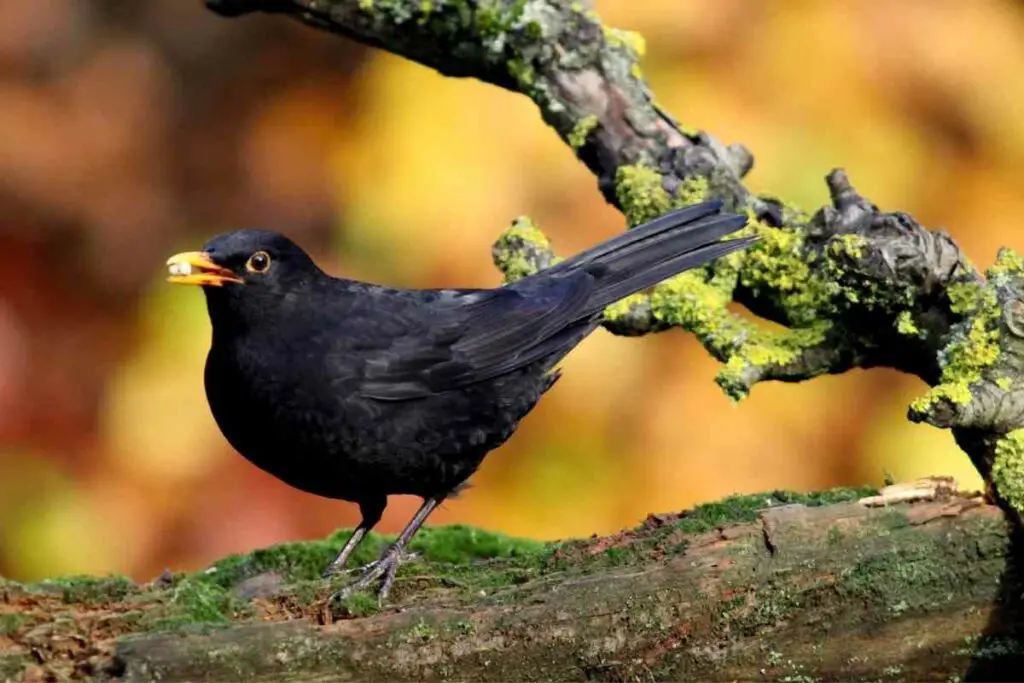
Like many other birds, blackbirds have a homing instinct.
They tend to return to previous nesting locations after migrating, especially if those locations have an abundant source of food.
In Short – Blackbirds will keep returning to your garden year after year, as long as they continue finding food and water nearby. These birds can be fun to watch and eat some garden pests, so they can be helpful to have around. However, they may eat corn and some other produce as well.
Are Blackbirds Territorial?
Blackbirds are very territorial; they will squawk at other birds and fight for their boundaries.
You’ll usually see a blackbird couple in your garden who scare away the other birds.
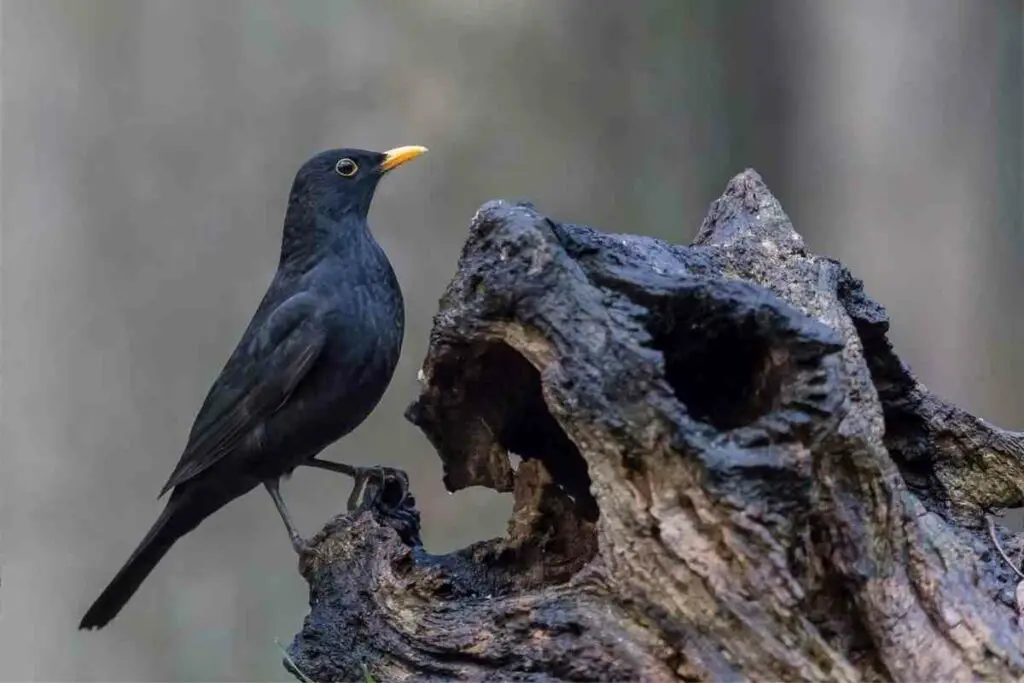
However, these birds tend to be about as territorial as robins- so you shouldn’t worry much.
This species will protect their nest from other animals they see as a threat.
They’ll return to the same area each year and establish their territory.
Do Blackbirds Use the Same Nest?
Blackbirds will usually need to rebuild their nest each year upon returning to your garden.
However, they’ll also have more than one brood in the nest.
Once the pair selects a spot for a nest, the female starts to build it.
She finds plant materials and twigs then forms the nest in a tree. If the nest doesn’t turn out, she’ll have no problems removing it and using the materials to start a new one.
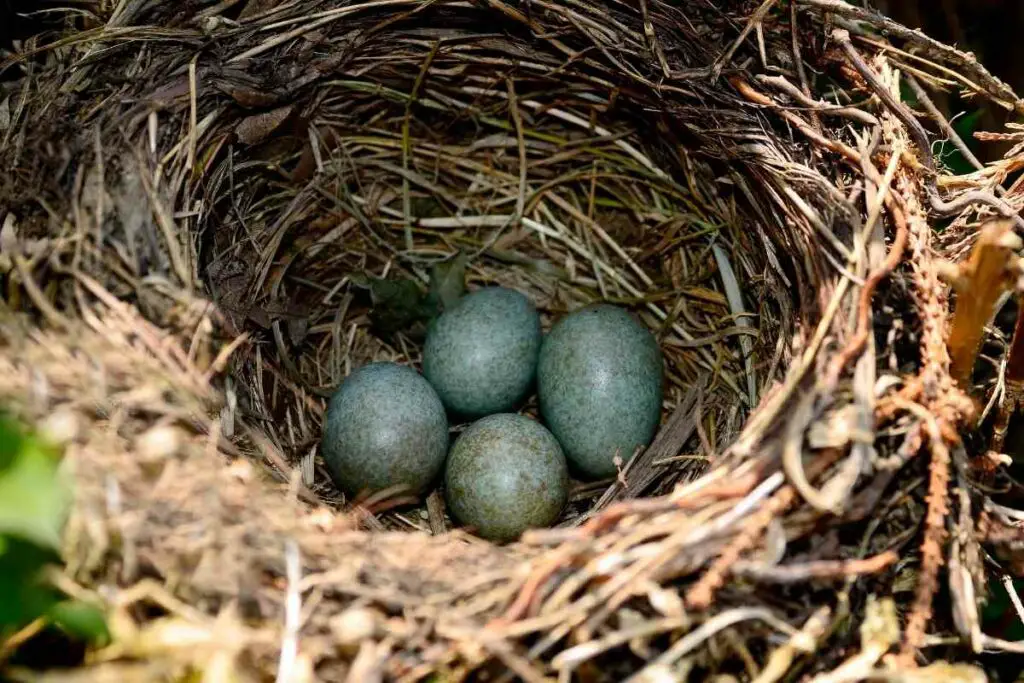
Once the completed nest is in place, the blackbird couple can have three to four broods while using the same nest.
However, disturbing the nest can cause the birds to abandon it and never return!
Keep In Mind – If you do find a seemingly abandoned nest, don’t touch it! Blackbirds have a powerful instinct to stay with their eggs but leave them behind if harassed. It’s also very easy to accidentally break their eggs.
Instead, contact a wildlife rehabilitator if you suspect there’s an abandoned nest in your garden.
Overall, the birds will reuse a single nest during the year. However, they will likely need to rebuild their nest after returning in the spring.
If the birds had a good experience in your garden, it’s not uncommon for them to rebuild it in the same place.
Are Blackbirds Good For the Garden?
Blackbirds are both good and bad for your garden.
They can keep away certain pests and pull up some weeds, although they also can pull up your plants.
If you want to stop them from eating your crops, adding a hanging bird feeder can help.
When they don’t need to put in as much effort to find food, the birds will choose the seed feeder over your crops- especially if you include their favorite seeds!
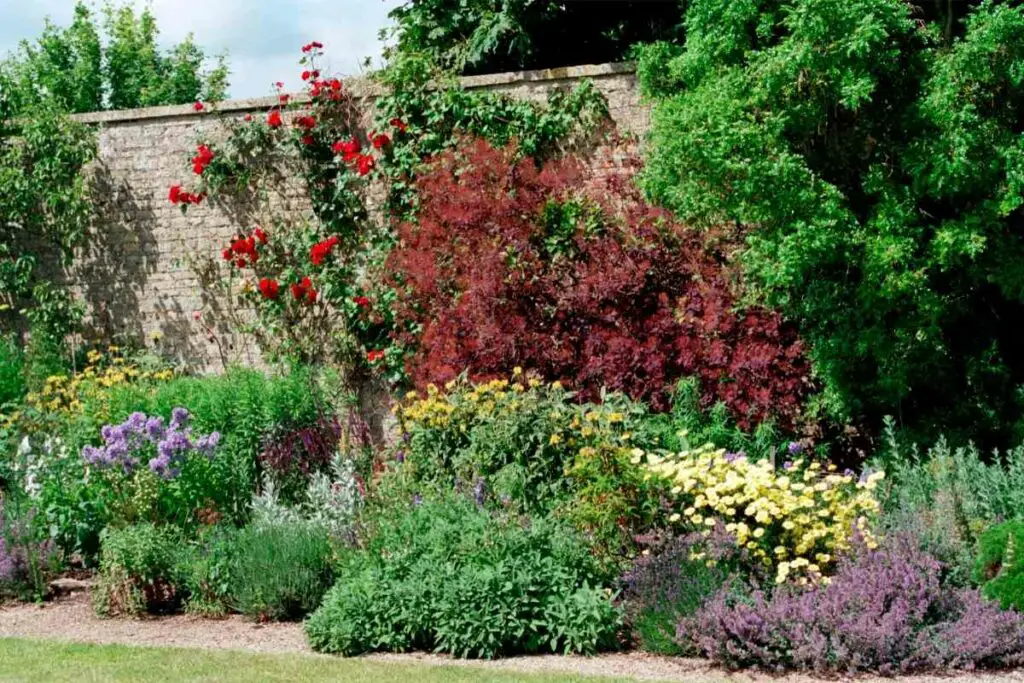
Blackbirds love shelled sunflower seeds and various grains.
Blackbirds also prefer to use larger, open feeders to not feel crowded. You’ll want to give them as much room to perch as possible so they don’t ignore the bird feeder.
Overall, some gardeners love blackbirds, while others view them as nuisances.
Works Best: If you don’t want them to pull up plants in your garden, pouring used coffee grounds over the soil can deter them! They don’t like the strong scent.
How Can I Attract Blackbirds?
If you love blackbirds, it’s pretty easy to attract them to your garden!
Most gardens will already lure them in. However, adding certain plants increases the odds they choose your property to nest in.
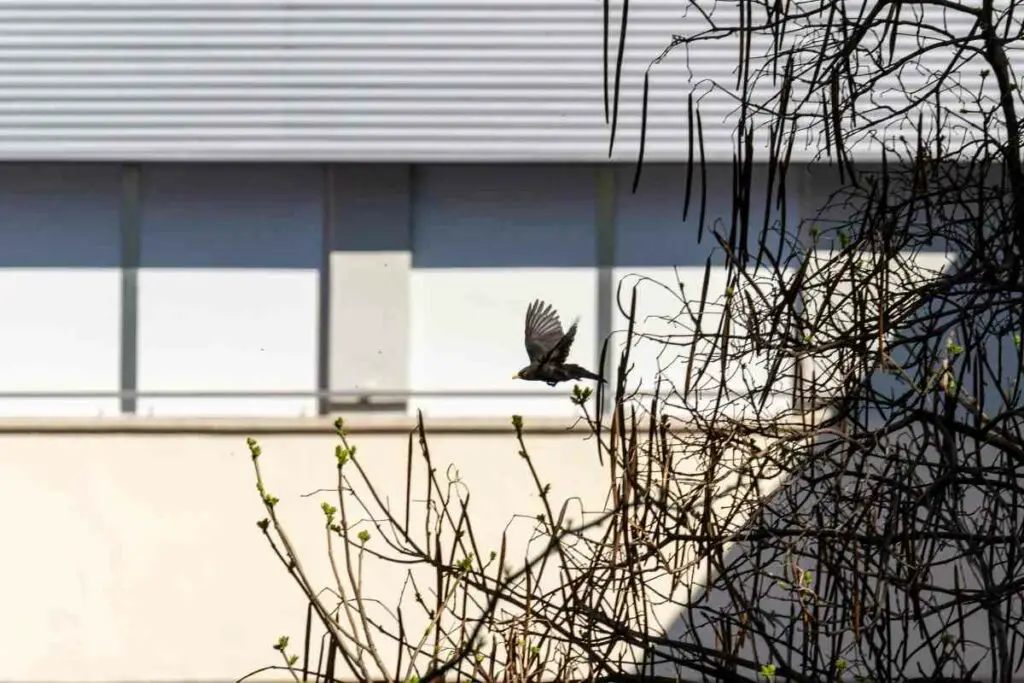
Fruiting plants including blackberries, strawberries, raspberries, cherries, plums, and grapes are sure to bring blackbirds to your garden!
The birds love these fruits and prefer to nest where they’re widely available.
Blackbirds also enjoy:
- corn
- sunflowers
- peas
- and tomatoes
Since many of these crops appear on farms, it’s not uncommon for them to also be the home of many blackbirds.
Overall, wild blackbirds have a varied diet. They eat seeds, insects, fruit, vegetables, and plenty of insects!
If your garden offers these, you’re sure to see many blackbirds lingering nearby.
How Common are Blackbirds in Gardens?
Blackbirds look like crows, although they are much, much smaller.
Blackbirds also have bright orange beaks instead of black ones. These birds are pretty intelligent and very common in gardens around the world.
Blackbirds are also very noticeable because they come up to gardeners all the time!
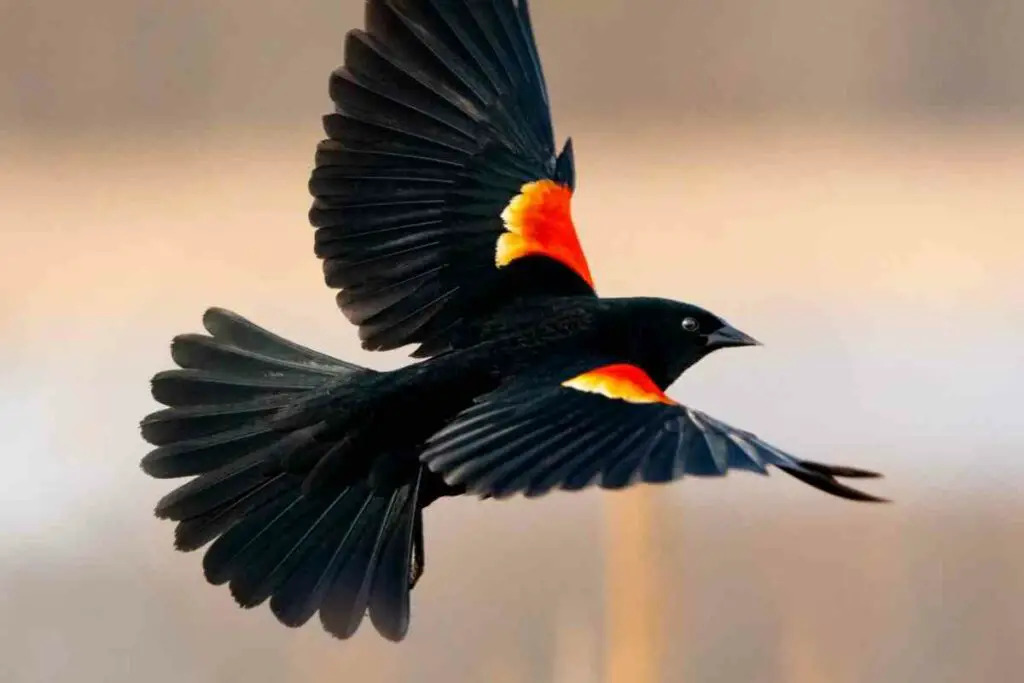
They learn when you set out seeds, mow the lawn, and weed your garden. These activities stir up insects or other food sources for them to enjoy.
There are also multiple species of blackbirds, depending on where you live.
For Example – The red-winged blackbird is very prevalent across America. In contrast, the common blackbird is more present in the United Kingdom.
When Do Blackbirds Migrate?
Blackbirds will stay in their nests for as long as possible.
As the temperature starts to drop, they begin preparing to migrate to warmer climates, where there’s more food for them.
Usually, the birds will migrate between October and November.
Once spring returns to your garden, you’re sure to see the blackbirds again! Most of the time, their migration lasts about 10 to 12 weeks.
Read Next
- How to Tell a Dunnock from a Sparrow: Simple Tips for Birdwatchers
- Difference Between Male and Female Dunnocks?
- What Does a Dunnock Look Like?
- How to Keep Mosquitoes Away From Your Patio: Tips and Tricks
- Can Coyotes Climb Trees? Exploring Their Climbing Abilities
- How to Control White Aphids: Effective Tips for Getting Rid of Them




